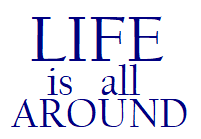Although part of our work, deadlines scare a lot of people. Either it is for the last project in your company or a writing assignment for your school, deadlines can cause a lot of stress. Yet, with a specific approach, setting deadlines can become a powerful tool.
Perspective matters
Setting deadlines is not only about getting things done. It is more than that. The moment you set a deadline, you mentally prepare yourself to accomplish a project. It helps you make your thoughts real while giving you a structure to follow.
Most importantly, deadlines are about you, not about the project. The project will happen one way or another. If you use deadlines, not only will it happen faster, but you can enjoy the process more. Although it sounds counterintuitive, the main benefit of deadlines -if used right- is the peace of mind they can bring.
For example, imagine you want to write a book. If you have no deadlines, you can take a long time to complete this task. Every time you think about the book, you unconsciously feel sad you take so long. What you could enjoy starts to become a burden. Instead, if you had followed a few deadlines, you could feel happy with your progress and enjoy whatever else you are doing without any second thoughts about your book.
Balance is key
Although they are useful, you do not want to use deadlines for everything. In general, there are four types of tasks you perform, depending on your wants and needs. Deadlines are particularly useful when they concern tasks you want to do but do not necessarily have to, such as writing a book.
On the other hand, if you have to do something you do not want, such as washing the dishes, deadlines can be a great excuse to procrastinate. Imagine you prepare dinner today, but you do not want to wash the dishes now. So you say, by tomorrow morning, I will have done the dishes.
Setting this trivial deadline is a way of saying to yourself that you will do the dishes tomorrow morning. Often, you may be in a hurry tomorrow morning, and you won’t wash the dishes. So you fail a deadline. And the moment you fail a deadline, you feel bad about yourself. Apart from that, failing deadlines can become a dangerous habit if you keep using them for unwanted tasks.
Understand the Why
People often complain they do not have enough time. If you think about this, it is not a matter of having enough time; after all, we all have 24 hours per day. It is a matter of priorities. And deadlines can help you prioritize the stuff you want to do by forcing you to make time for them.
No matter what you do, time runs at the same pace for everyone. Time is always there. Yet, some people seem to have taken charge of it while others keep complaining. Deadlines are a handy tool if you want to be in the former group. In short, you want to set a deadline for a task that you will enjoy doing, but you cannot make the time otherwise.
For all unwanted but necessary tasks, the 80-20 rule can prove handy. Now, if you both have to and want to do something, congratulations, you are on a high road to success. You do not really need deadlines for those tasks. You naturally and joyfully do them no matter how long they take. That is why having a job that you enjoy doing is important; even more important than the paycheck.
Takeaway
- Deadlines are about you, not about the project
- Deadlines are particularly useful when they concern tasks you want to do but do not necessarily have to, such as writing a book.
- Deadlines can help you prioritize the stuff you want to do by forcing you to make time for what matters the most



